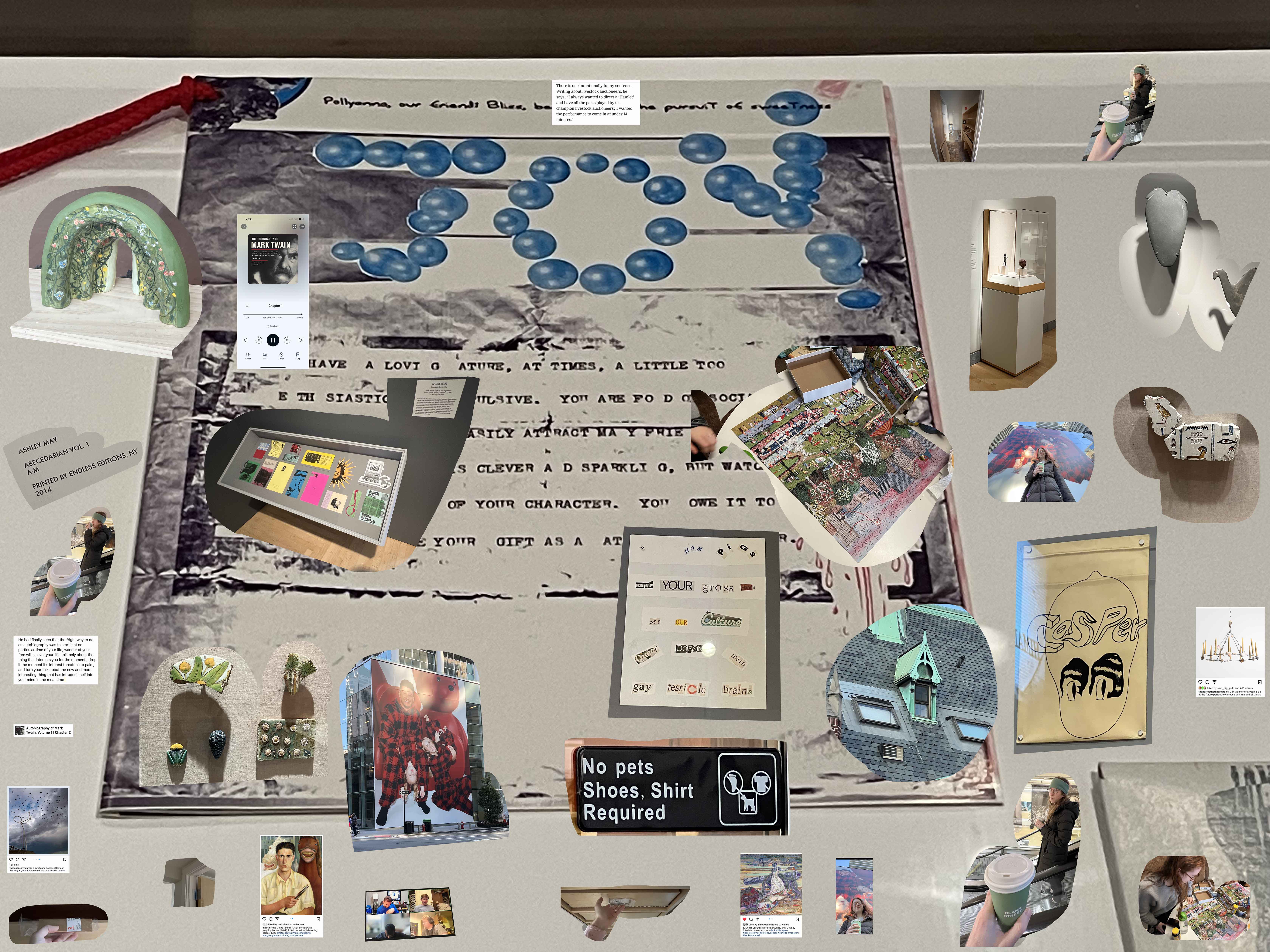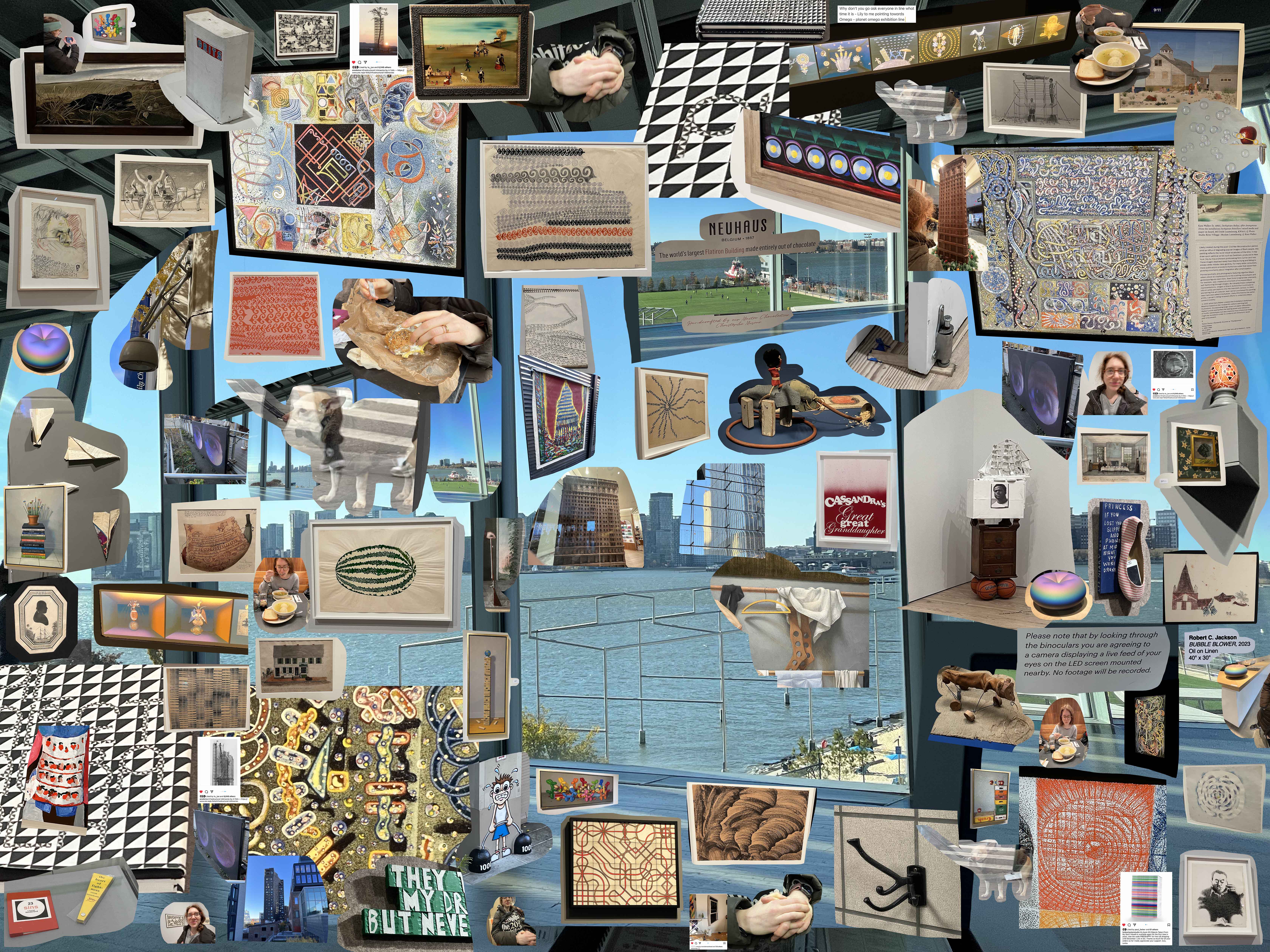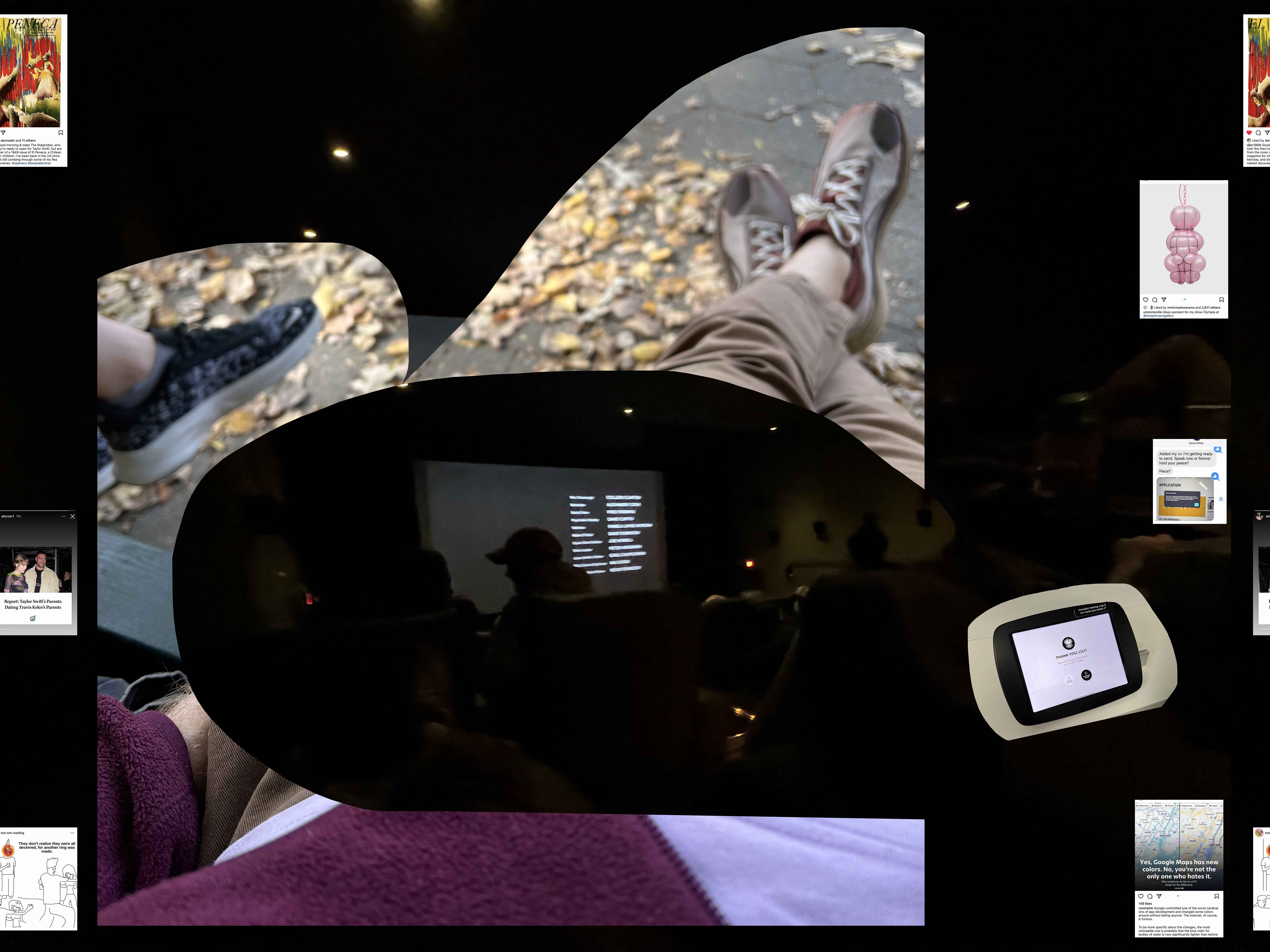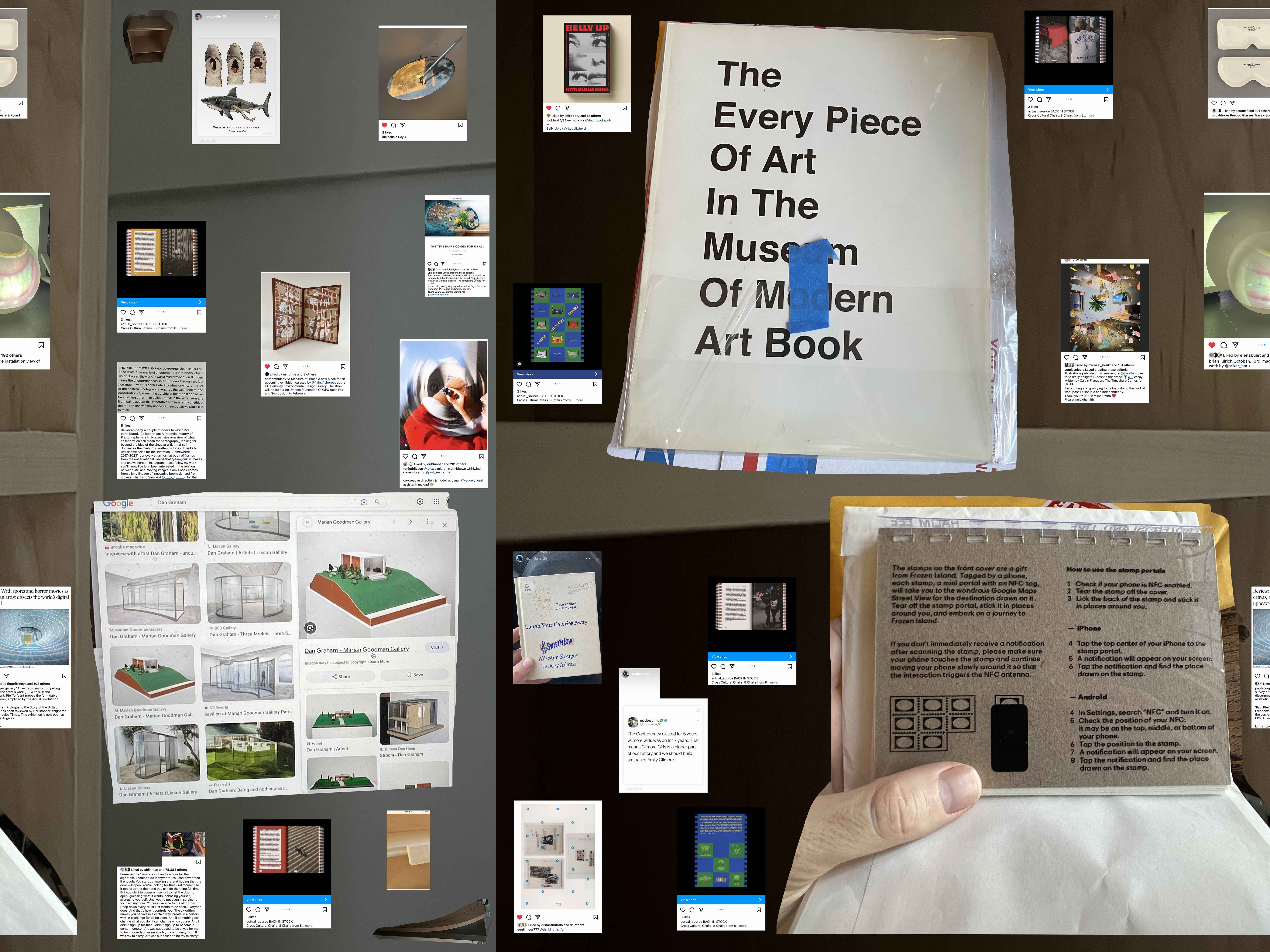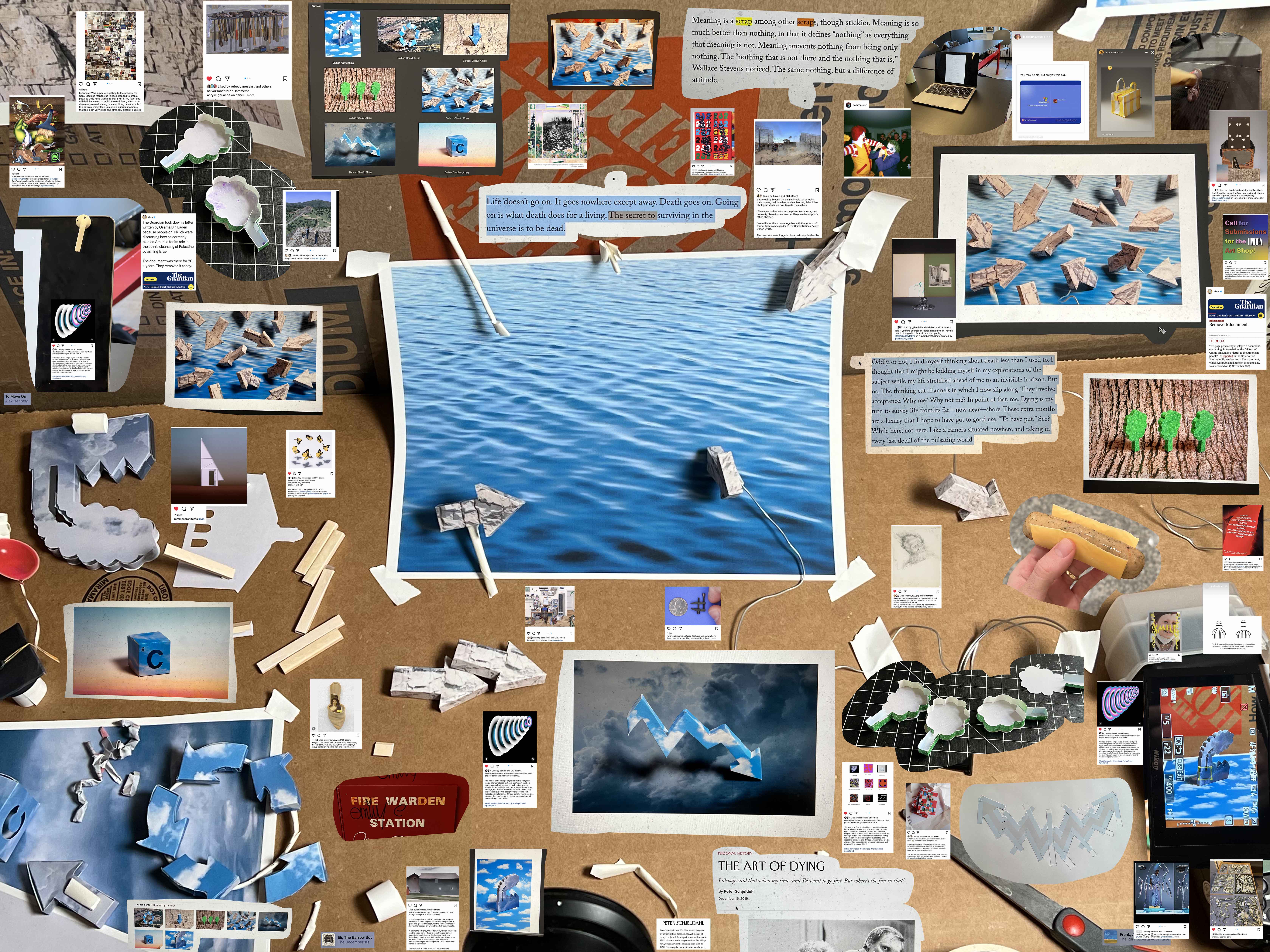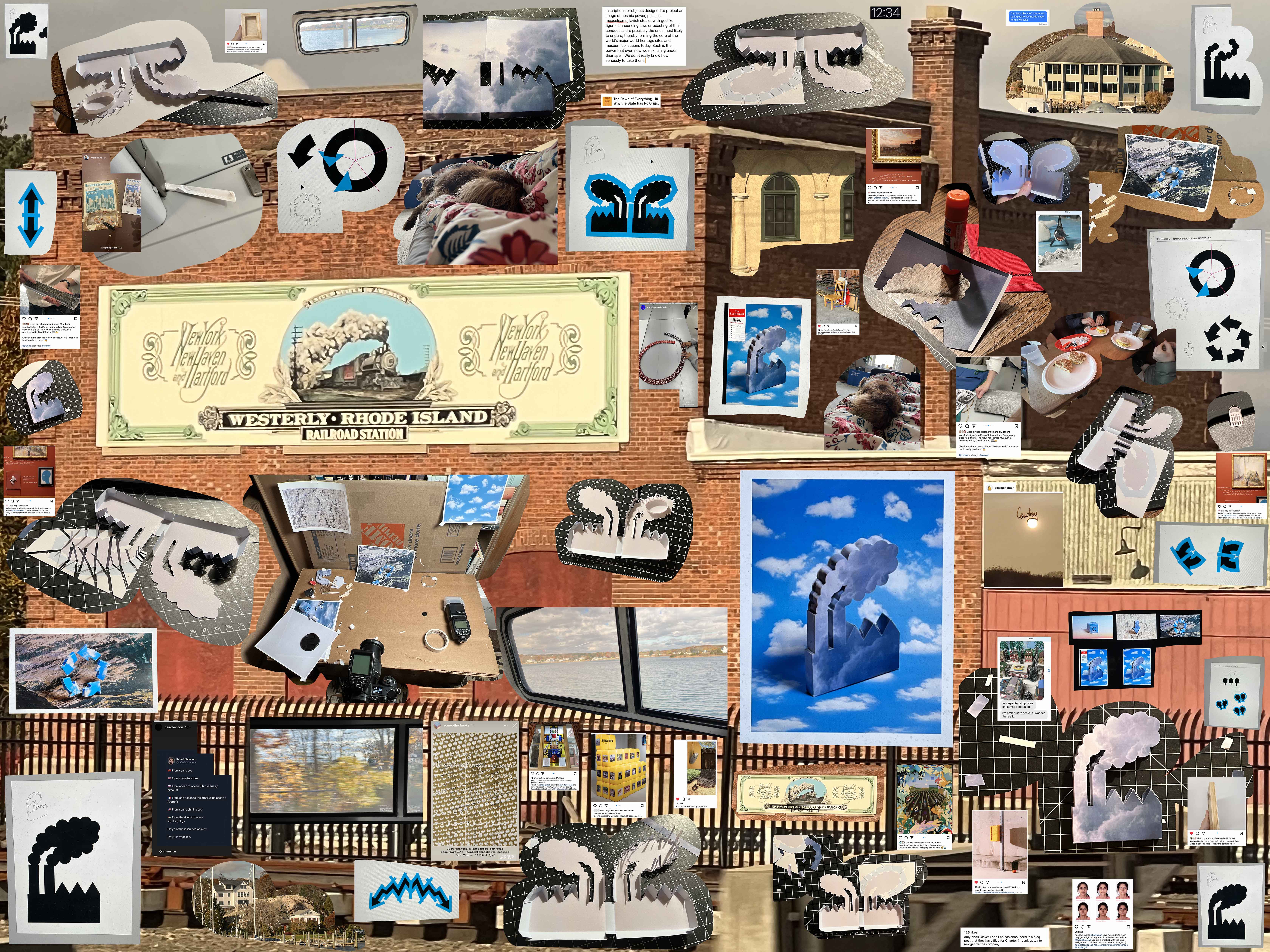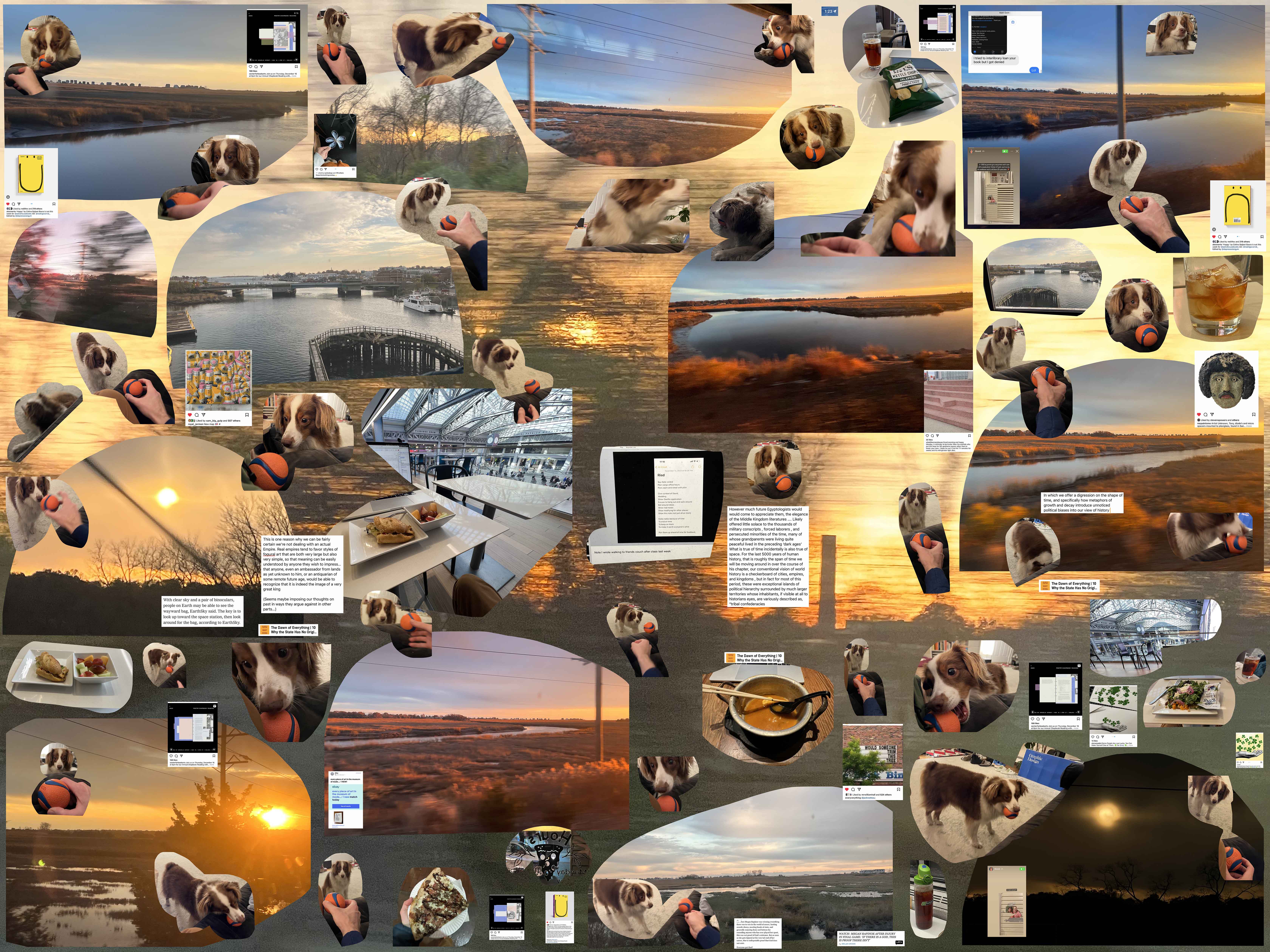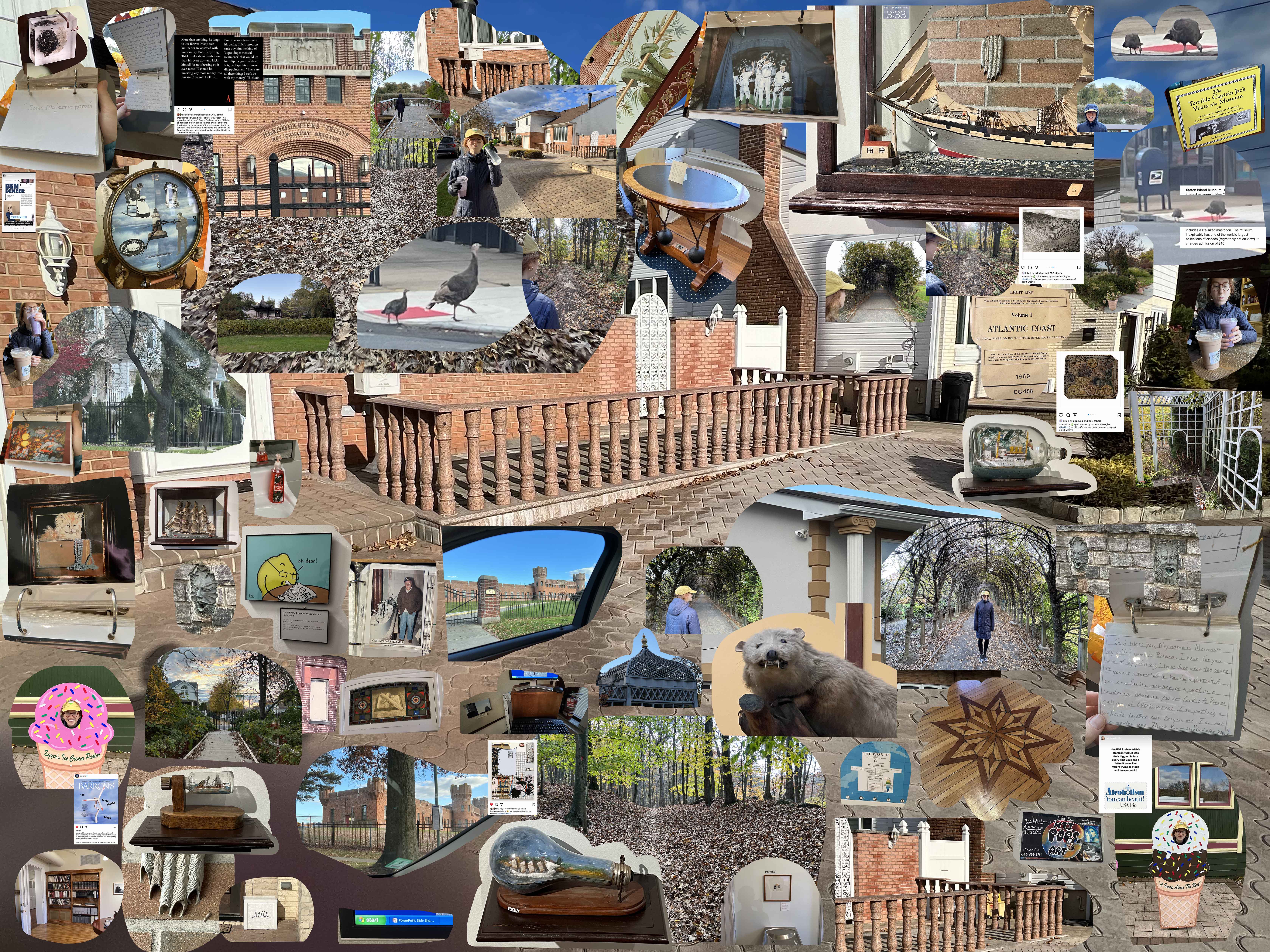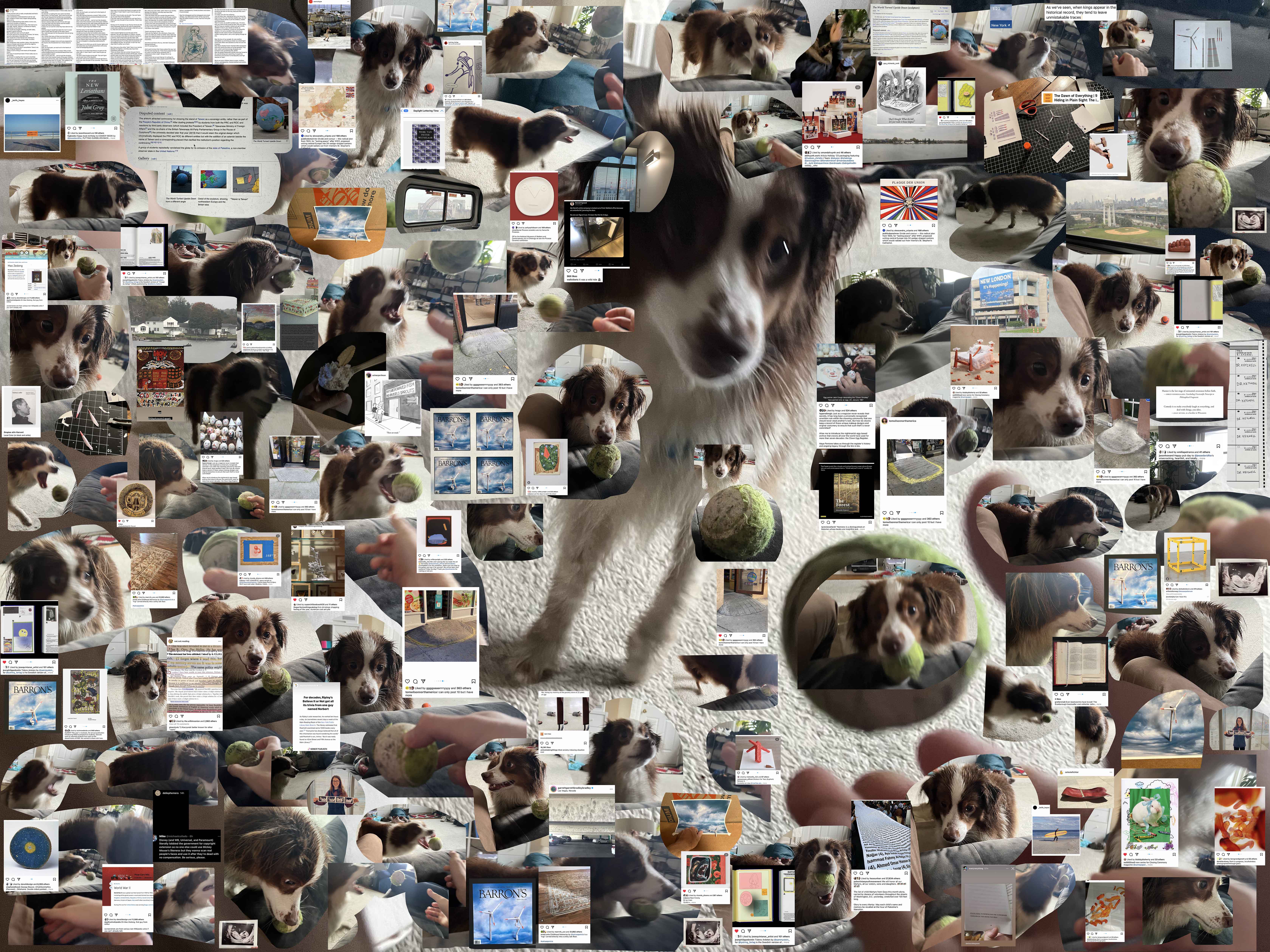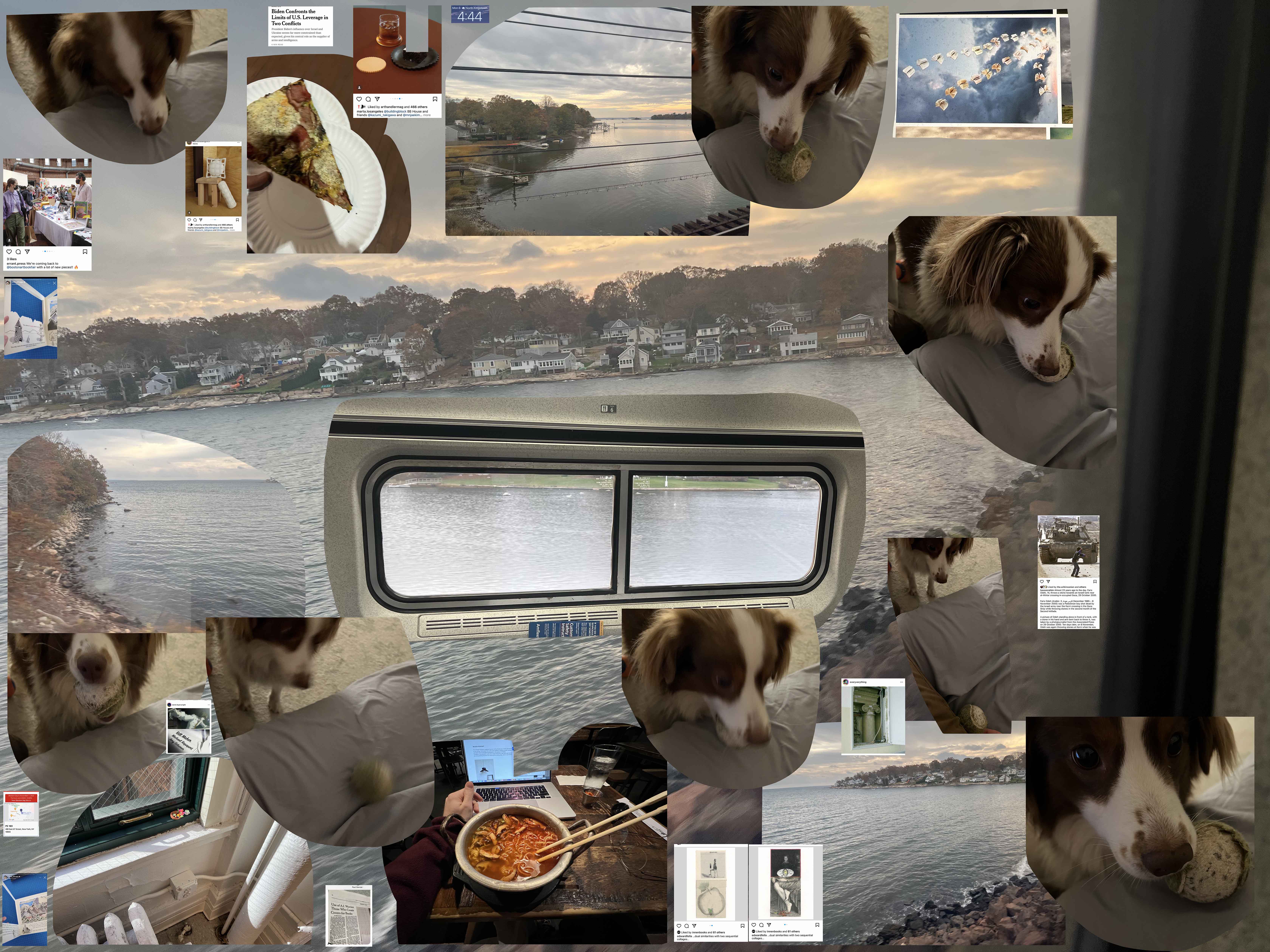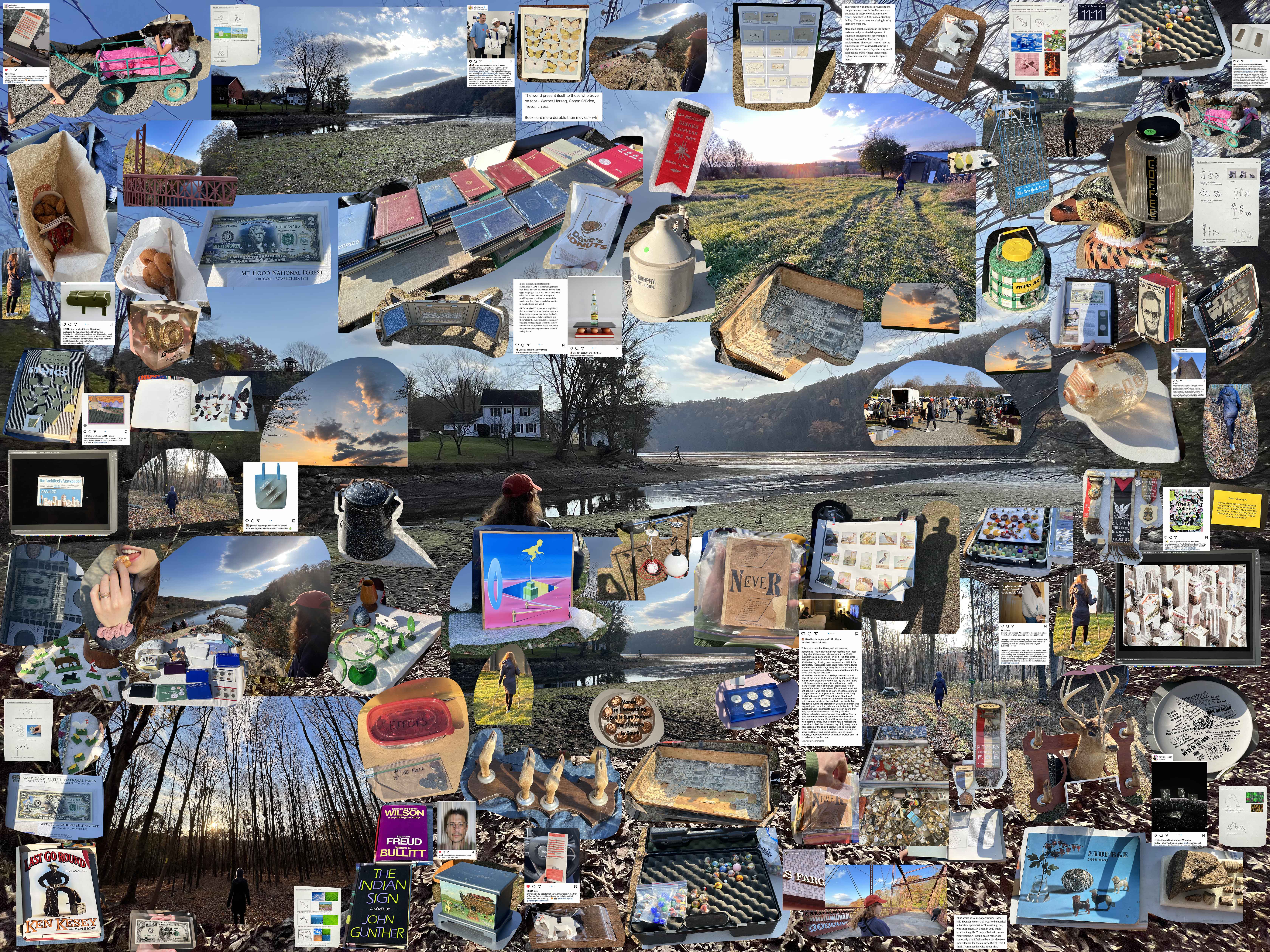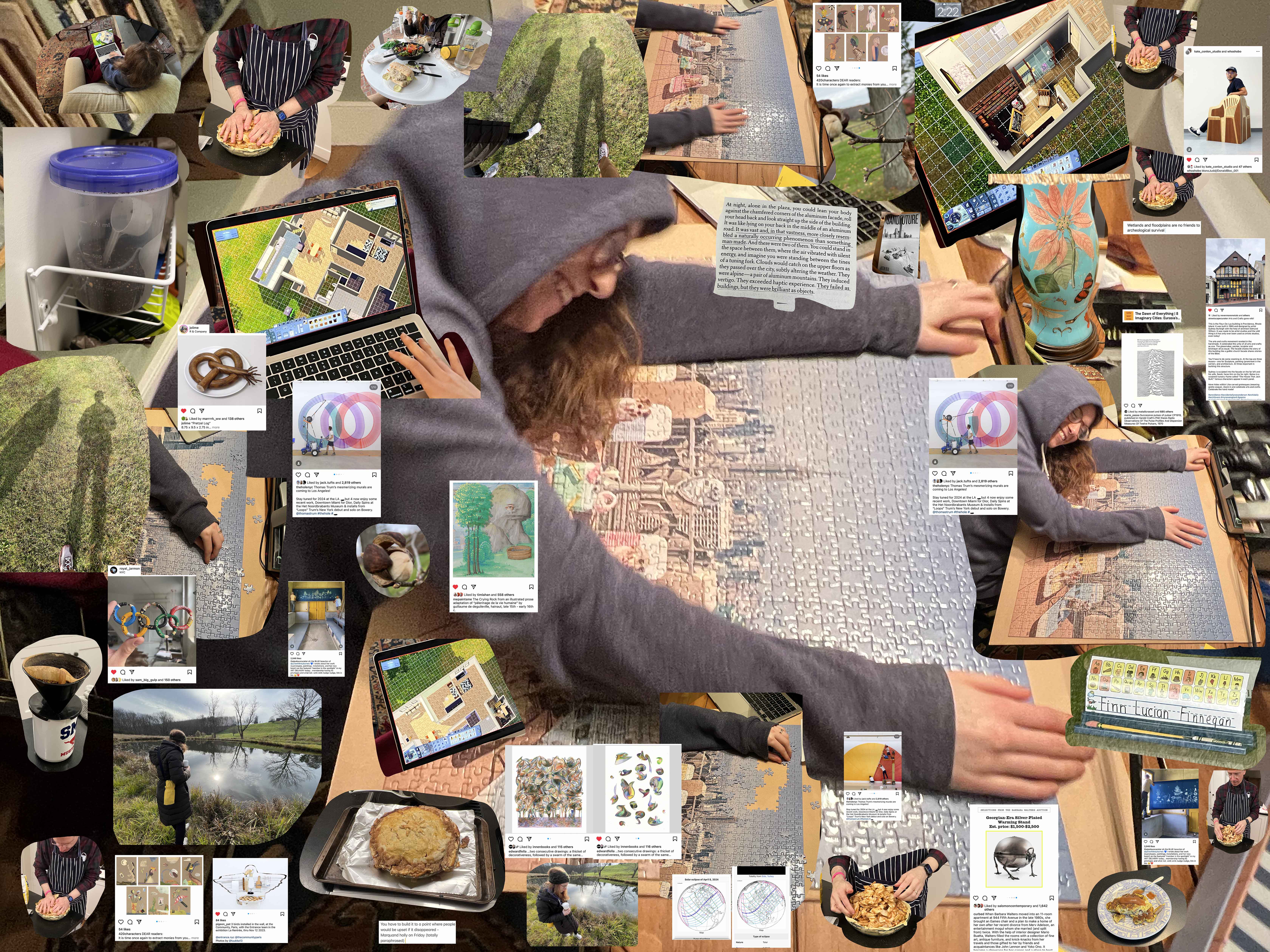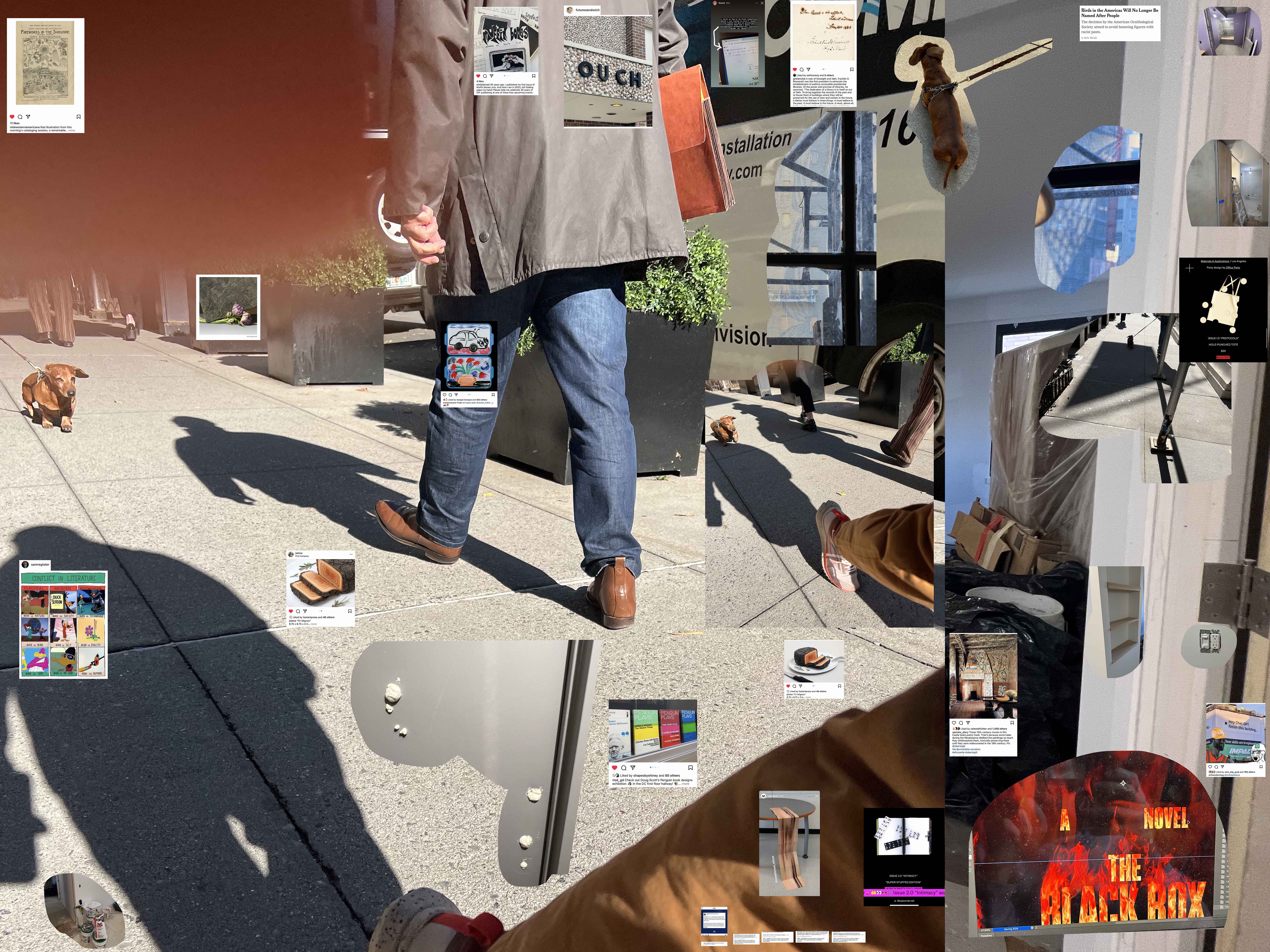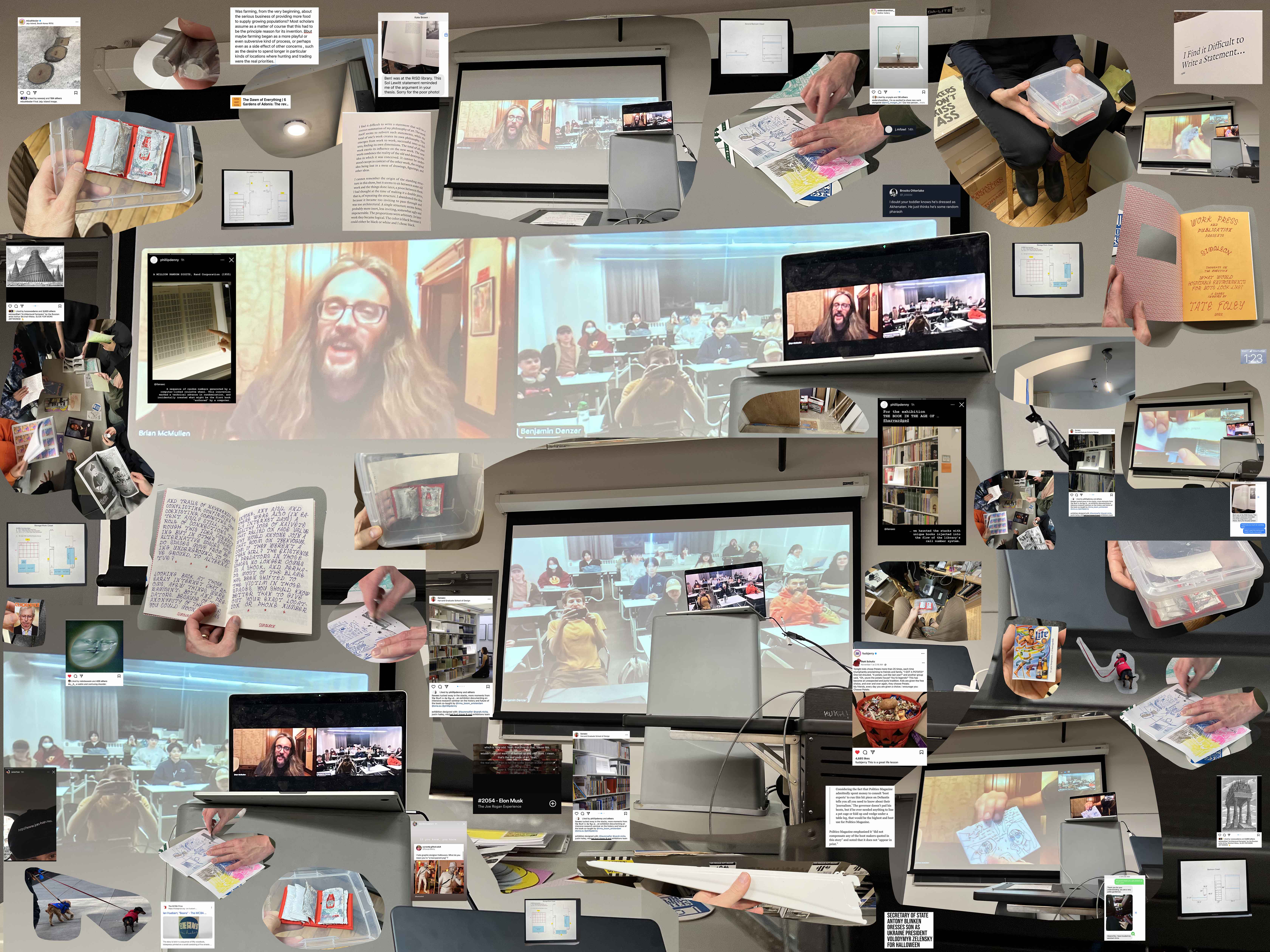Sunday, November 19, 2023
There is one intentionally funny sentence. Writing about livestock auctioneers, he says, “I always wanted to direct a ‘Hamlet’ and have all the parts played by ex-champion livestock auctioneers; I wanted the performance to come in at under 14 minutes.”
— Dwight Garner, "The Cosmic, Outrageous, Ecstatic Truths of Werner Herzog," The New York Times
Saturday, November 18, 2023
Why don't you go ask everyone on line what time it is.
— Lily pointing towards people in line for "Planet OMEGA" exhibition
Friday, November 17, 2023
There's nothing new in human experience, Mr. Tully. Each generation thinks it invented debauchery or suffering or rebellion, but man's every impulse and appetite from the disgusting to the sublime is on display right here all around you.
— Paul Giamatti, The Holdovers
Thursday, November 16, 2023
Jean Baudrillard once wrote, "The magic of photography is that it is the object which does all the work," It was a mild provocation. It undermines the photographer as sole author and recognized just how much "work" is contributed by what, or who, is in front of the camera. Photography requires the existence of, and contribution of, something outside of itself, so it can never be anything other than collaborative in the wider sense.
— David Campany, Collaboration: A Potential History of Photography, via @davidcampany
Wednesday, November 15, 2023
Meaning is a scrap among other scraps, though stickier. Meaning is so much better than nothing, in that it defines “nothing” as everything that meaning is not. Meaning prevents nothing from being only nothing. The “nothing that is not there and the nothing that is,” Wallace Stevens noticed. The same nothing, but a difference of attitude.
— Peter Schjeldahl, "The Art of Dying," The New Yorker
Tuesday, November 14, 2023
Inscriptions or objects designed to project an image of cosmic power - palaces, mausoleums, lavish stelae with godlike figures announcing laws or boasting of their conquests - are all precisely the ones most likely to endure, thereby forming the core of the world's major heritage sites and museum collections today. Such is their power that even now we risk falling under their spell. We don't really know how seriously to take them.
— David Graeber and David Wengrow, The Dawn of Everything
Monday, November 13, 2023
IN WHICH WE OFFER A DIGRESSION ON “THE SHAPE OF TIME”, AND SPECIFICALLY HOW METAPHORS OF GROWTH AND DECAY INTRODUCE UNNOTICED POLITICAL BIASES INTO OUR VIEW OF HISTORY
— David Graeber and David Wengrow, The Dawn of Everything
Sunday, November 12, 2023
Do you know a psychotic thought that I've had, that the Temple of Dendur has something to do with me.
— Lily
Saturday, November 11, 2023
The museum inexplicably has one of the world's largest collections of cicadas (regrettably not on view). It charges admission of $10.
— Andrew Sondern, "A Tourist's Guide to Staten Island"
Friday, November 10, 2023
Everyone, close your eyes.
— One Night Ultimate Werewolf app
Thursday, November 9, 2023
Are you stealing our popcorn?
— Rina (potentially paraphrased)
Wednesday, November 8, 2023
It's the kookiest book cover I've ever seen."
— Conan O'Brien, "Reggie Watts: Conan O'Brien Needs A Friend"
Tuesday, November 7, 2023
As we've seen, when kings appear in the historical record, they tend to leave unmistakable traces.
— David Graeber and David Wengrow, The Dawn of Everything
Monday, November 6, 2023
President Biden's influence over Israel and Ukraine seems far more constrained than expected, given his central role as the supplier of arms and intelligence.
— New York Times subheadline
Sunday, November 5, 2023
The world presents itself to those who travel on foot.
— Werner Herzog, "Werner Herzog: Conan O'Brien Needs A Friend"
Saturday, November 4, 2023
It was vast and, in that vastness, more closely resembled a naturally occuring phenomenon than something man-made.
— Justin Beal, Sandfuture
Friday, November 3, 2023
What inspires me is that the work is a long continuum and never ending. I take stewardship of collections very seriously, as long in the future someone will benefit from my collection building and caretaking– as I have from past librarians. Preparing for an unknown future is an exciting and challenging puzzle. What we think is a great collection today is continually changing.
— Holly Hatheway, "What inspires you? Holly Hatheway, Head of Marquand Library"
Thursday, November 2, 2023
Birds in the Americas Will No Longer Be Named After People
— New York Times headline
Wednesday, November 1, 2023
Was farming from the very beginning about the serious business of producing more food to supply growing populations? Most scholars assume, as a matter of course, that this had to be the principal reason for its invention. But maybe farming began as a more playful or even subversive kind of process - or perhaps even as a side effect of other concerns, such as the desire to spend longer in particular kinds of locations, where hunting and trading were the real priorities.
— David Graeber and David Wengrow, The Dawn of Everything
Tuesday, October 31, 2023
American societies typically reffered to themselves by some term that can be roughly translated as 'human beings' - most of the tribal names traditionally applied to them by Europeans are derogatory terms used by their neighbours ('Eskimo', for example, means 'people who don't cook their fish', and 'Iroquois' is derived from an Algonkian term meaning 'vicious killers').
— David Graeber and David Wengrow, The Dawn of Everything
